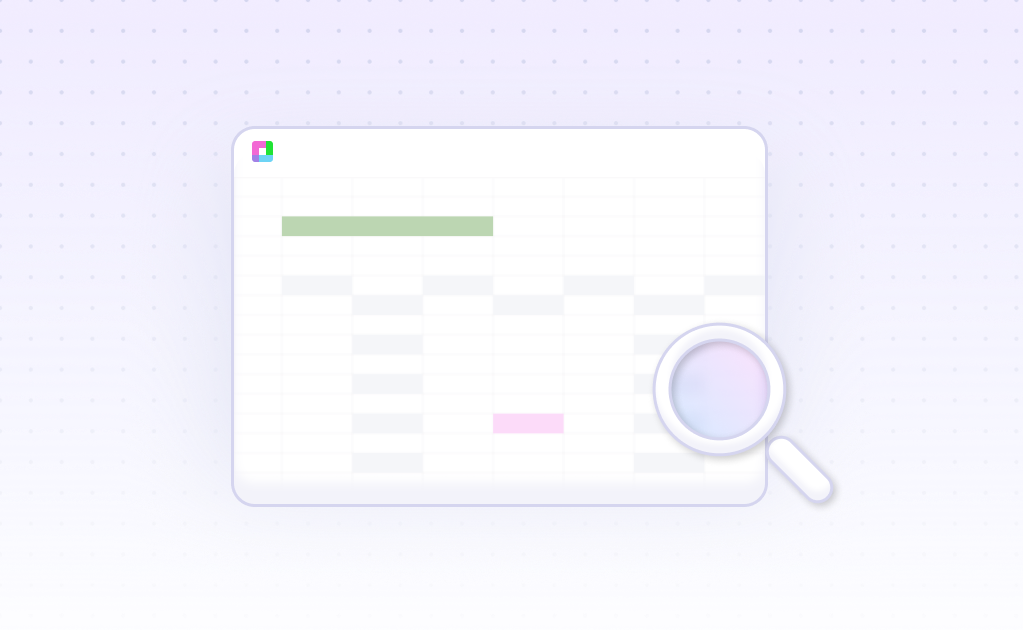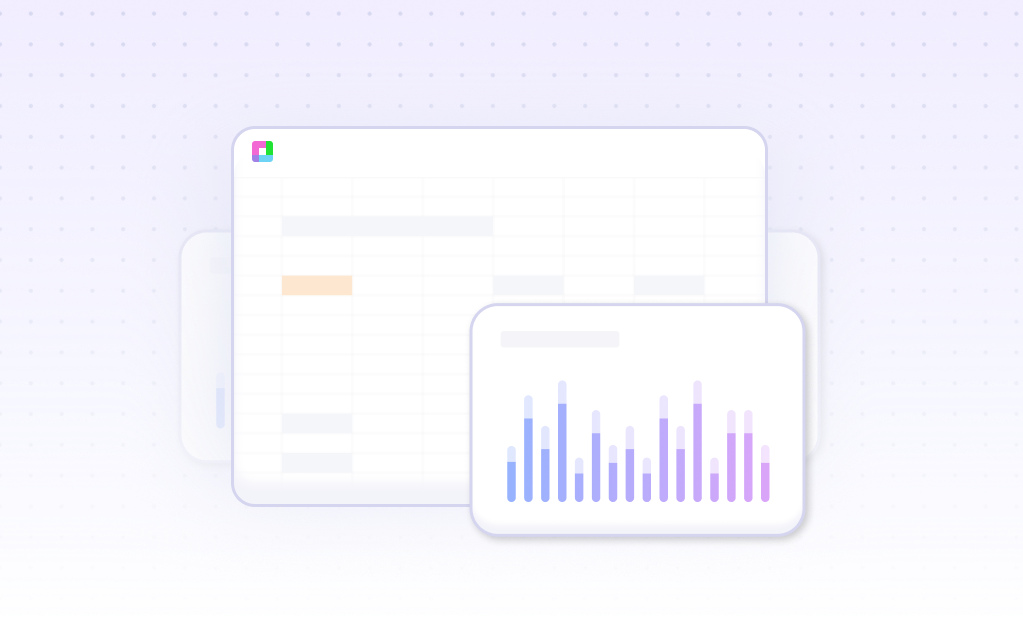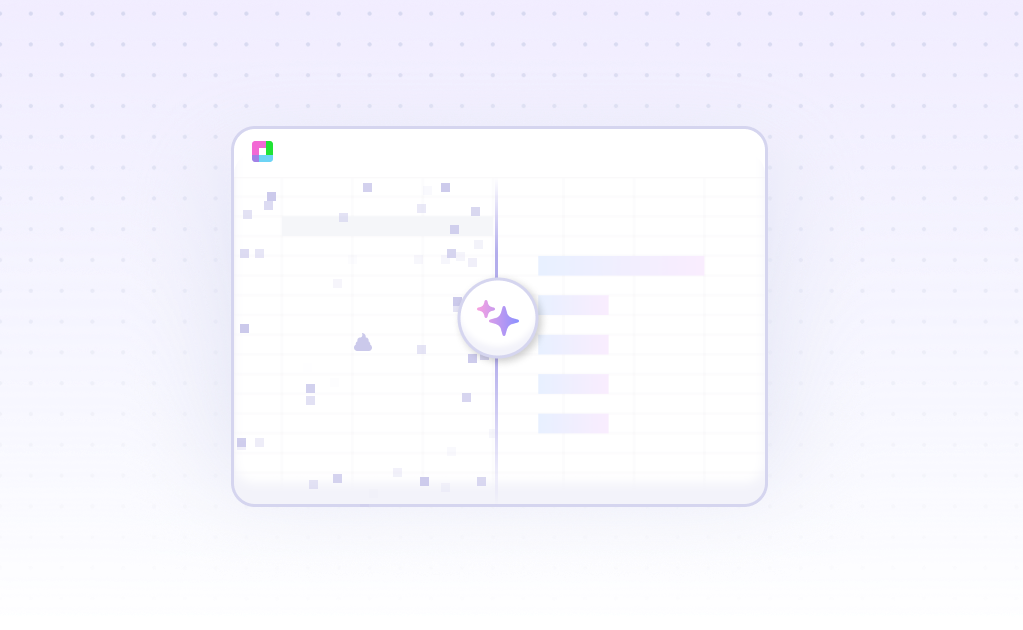
Introduction
Financial performance ratio analysis is essential for making informed business decisions. Excel is a widely-used tool for calculating these ratios, requiring users to input financial data from statements and create tables with specific formulas. While Excel is relatively straightforward, modern AI-powered alternatives offer enhanced capabilities.
Sourcetable, an AI-powered spreadsheet platform, combines traditional spreadsheet functionality with an intelligent chatbot assistant. This tool automates complex calculations, uncovers patterns in financial data, and provides real-time insights through natural language commands. The platform can analyze trends, generate informative visualizations, and integrate with over 100 data sources.
Discover how to streamline your financial ratio analysis with Sourcetable's AI capabilities at sourcetable.com/signup.
Why Sourcetable Is Superior for Financial Ratio Analysis
Sourcetable transforms financial ratio analysis through AI-powered automation and collaboration features. While Excel and Sourcetable share core functionality like calculators and charting, Sourcetable's AI capabilities automate data extraction, provide predictive analytics, and detect errors in real-time.
Enhanced Efficiency and Accuracy
Sourcetable's AI automation streamlines the monitoring of critical financial ratios that drive business survival and performance. The platform's real-time error detection and automated data processing reduce the manual work required in traditional Excel analysis.
Collaborative Analysis
Unlike Excel's limited sharing capabilities, Sourcetable enables true multi-user collaboration with a complete audit trail. Teams can simultaneously analyze financial ratios, improving business efficiency and decision-making across departments.
Advanced Analytics Integration
Sourcetable combines spreadsheet functionality with AI-powered research capabilities. This integration provides deeper insights into company performance and helps sustain business financing through enhanced analytical capabilities.
Sourcetable's natural language processing and automated visualization features make financial ratio analysis more accessible and actionable than Excel-based workflows, while saving valuable time and resources.
Benefits of Financial Ratio Analysis with AI-Powered Spreadsheets
Financial ratio analysis helps investors understand company performance, estimate future growth, and compare businesses within industries. This analytical approach enables both investors and companies to evaluate how strategic changes impact sales, growth, and overall performance.
Why Choose Sourcetable Over Excel
Sourcetable offers the same robust spreadsheet features as GPTExcel, including analytics, audit trails, calculators, charting, and multi-user collaboration, but at no cost. Both platforms provide comprehensive deployment options across iOS, Android, Windows, Mac, and Linux, along with extensive third-party integrations.
AI-Powered Advantages
Sourcetable's AI capabilities automate data entry and analysis, identifying trends, outliers, and correlations more efficiently than traditional spreadsheets. The platform streamlines forecast generation, historical data analysis, and decision-making processes while seamlessly integrating with other software platforms.
With natural language processing capabilities, Sourcetable transforms complex spreadsheet tasks into simple commands, accelerating data visualization, reporting, and automation workflows. This AI-driven approach enhances the accuracy and efficiency of financial ratio analysis while reducing manual effort.
Financial Performance Ratio Analysis with Sourcetable
Sourcetable's AI-powered analysis capabilities enable real-time financial ratio calculations while uncovering hidden patterns and trends in company data. The platform continuously updates insights as new financial information becomes available, providing deeper understanding of organizational health through automated ratio analysis.
Profitability Ratios
Key profitability metrics include gross profit (Total Revenue - COGS) and net income (Gross Profit - Total Expenses). Operating margin (Total Operating Revenue - Total Expenses) / Total Revenue evaluates core business performance, while total margin (Total Revenue - Total Expenses) / Total Revenue measures overall profitability.
Liquidity Ratios
The current ratio Total Current Assets / Total Current Liabilities assesses short-term solvency. Days cash on hand (Cash + Cash Equivalents + Short Term Investments) / [(Total Expenses - Depreciation and Amortization) / Days in Period] measures immediate liquidity. Average days in accounts receivable Net Patient Accounts Receivable / (Net Patient Service Revenue / Days in Period) tracks collection efficiency.
Debt Management Ratios
The debt service coverage ratio (Net Income + Interest Expense + Depreciation Expense + Amortization Expense) / (Interest Expense + Current Portion of Long-term Debt) evaluates debt repayment ability. Cash flow to total debt (Net Income + Depreciation Expense + Amortization Expense) / (Current Liabilities + Non-current Long-term Debt) measures debt sustainability.
Capital Structure Ratios
Equity financing Total Net Assets / Total Assets reveals capital structure composition. Long-term debt to total capitalization Non-current Long-term Debt / (Non-current Long-term Debt + Unrestricted Net Assets) assesses long-term financial leverage. Dividend and retained earnings analysis provides insights into shareholder returns and reinvestment strategies.
Financial Performance Ratio Analysis Use Cases
Automated Comparative Analysis |
Analyze financial ratios across multiple companies automatically to compare relative financial health and make data-driven investment decisions. |
Predictive Sales Forecasting |
Leverage historical financial ratios and market trends to create sophisticated forecast models for future sales performance. |
Financial Health Assessment |
Generate automated insights about company profitability, liquidity, and earnings through systematic ratio analysis of financial statements. |
Market Trend Adaptation |
Develop dynamic financial models that automatically adjust to changing market conditions using AI-enhanced ratio analysis. |
Customer Retention Analysis |
Analyze financial performance ratios alongside customer data to predict potential customer churn and inform retention strategies. |
Frequently Asked Questions
What is financial ratio analysis and why is it important?
Financial ratio analysis is a management tool that improves understanding of financial results and trends over time. It provides key performance indicators that help managers determine organizational strengths and weaknesses, form strategies, and allows funders to compare results across organizations, judge management effectiveness, and gauge mission impact.
What makes financial ratio analysis useful and effective?
Financial ratio analysis is most useful when ratios are calculated from reliable financial information, calculated consistently, compared to internal and industry benchmarks, viewed as trends, and interpreted in context. Comparing financial ratios with major competitors helps determine which company is performing better or worse than industry averages.
How does AI enhance financial ratio analysis in modern spreadsheets?
AI agents can analyze financial ratios in real-time, continuously update insights as new data flows in, uncover hidden patterns and correlations, identify trends that human analysts might miss, and contextualize financial ratios by factoring in industry benchmarks, macroeconomic indicators, and company-specific variables.
Conclusion
Financial ratio analysis in Excel requires manual data entry, formula creation, and careful organization of financial statements. While Excel effectively calculates ratios for liquidity, profitability, and other key metrics, it demands significant time and expertise. Sourcetable offers an AI-powered alternative that automates these spreadsheet tasks, generating formulas like SUM and VLOOKUP automatically.
With Sourcetable's AI capabilities, financial ratio analysis becomes more efficient through automated data cleaning, real-time calculations, and instant chart generation. The platform integrates with SQL and Python for advanced analysis, while supporting voice-driven data interaction. Beyond basic calculations, AI agents can identify patterns, provide predictive insights, and continuously monitor financial health.
Ready to streamline your financial ratio analysis? Try Sourcetable's AI-powered spreadsheet solution at sourcetable.com/signup.
Recommended Analysis Guides
Connect your most-used data sources and tools to Sourcetable for seamless analysis.
Frequently Asked Questions
If your question is not covered here, you can contact our team.
Contact Us




